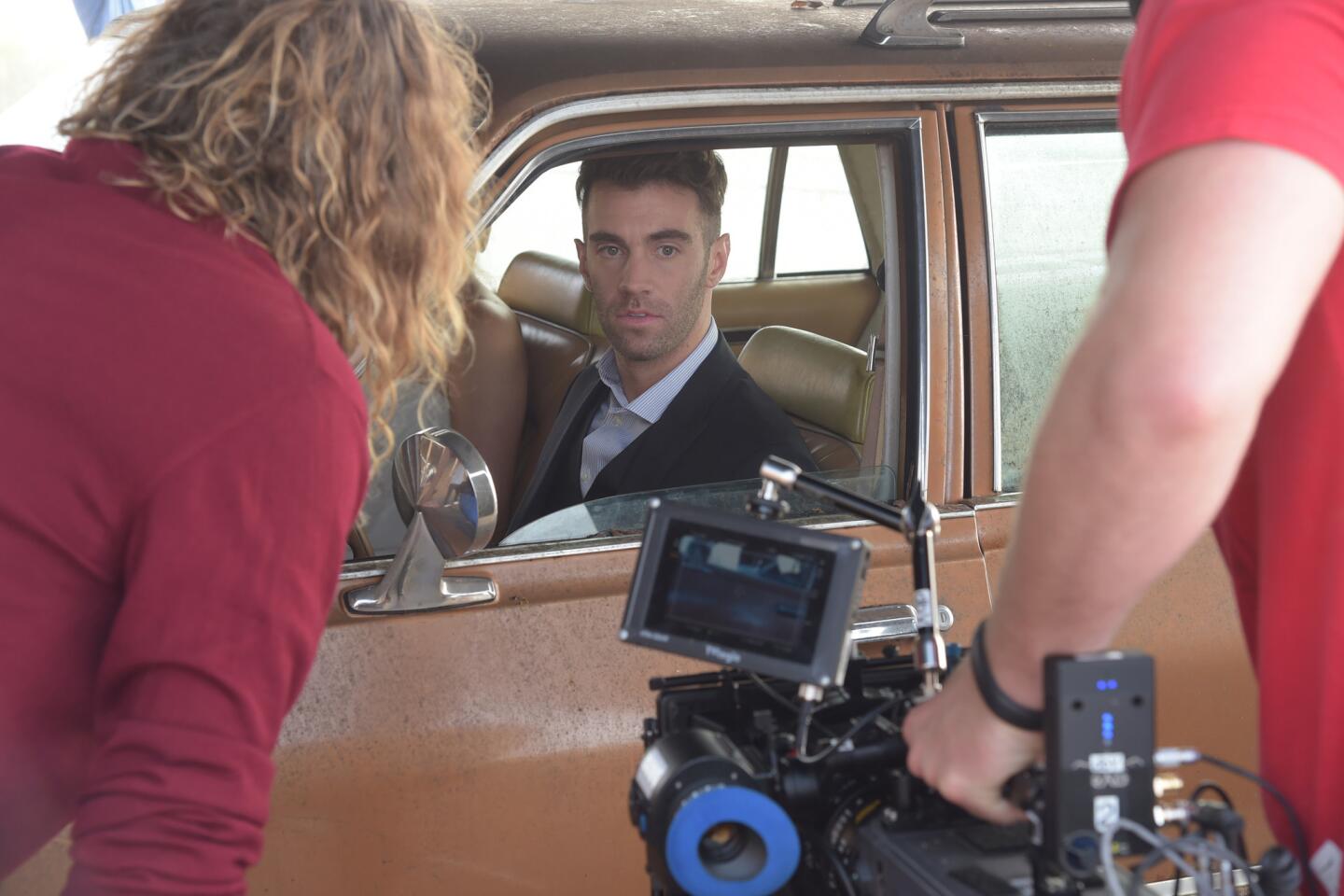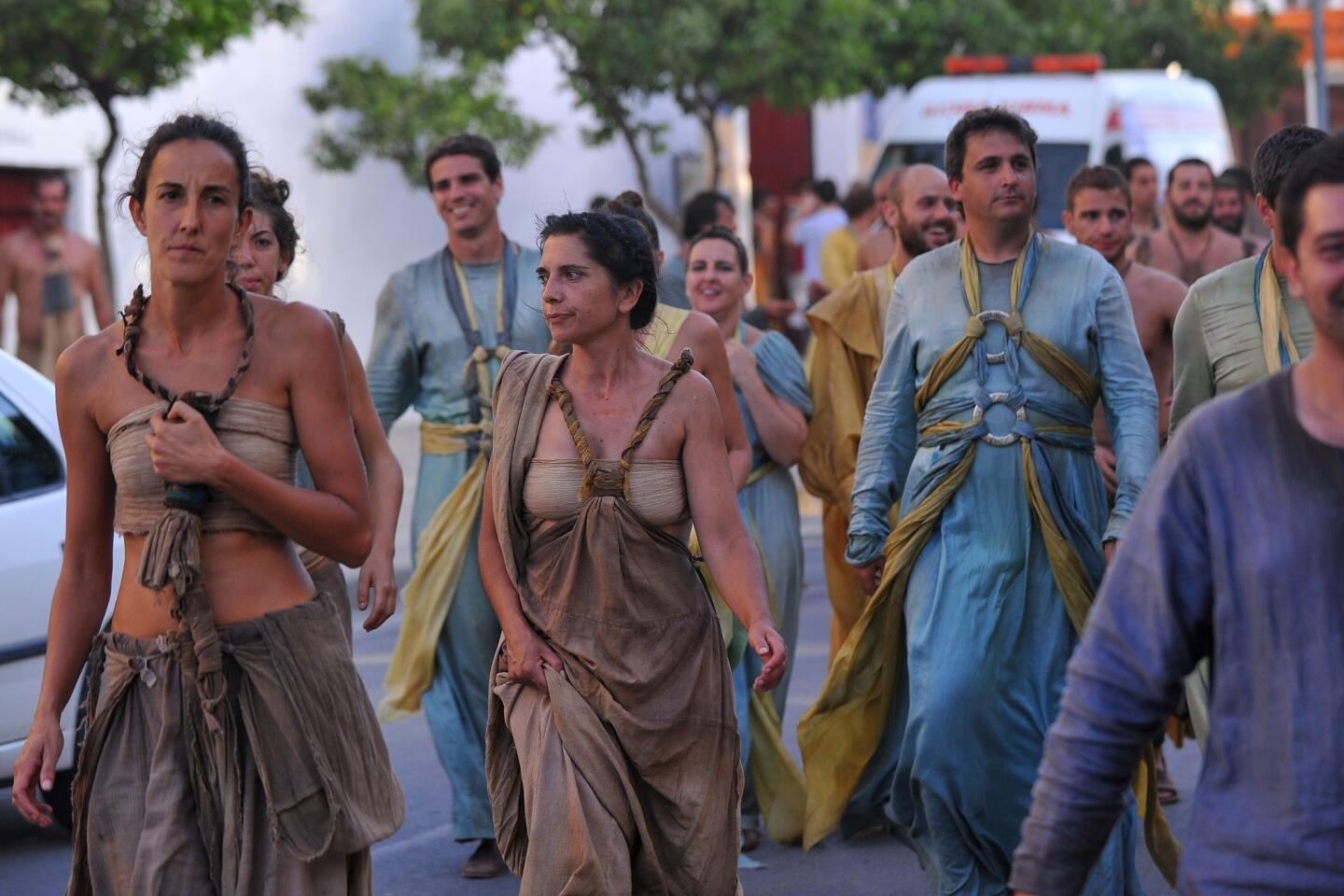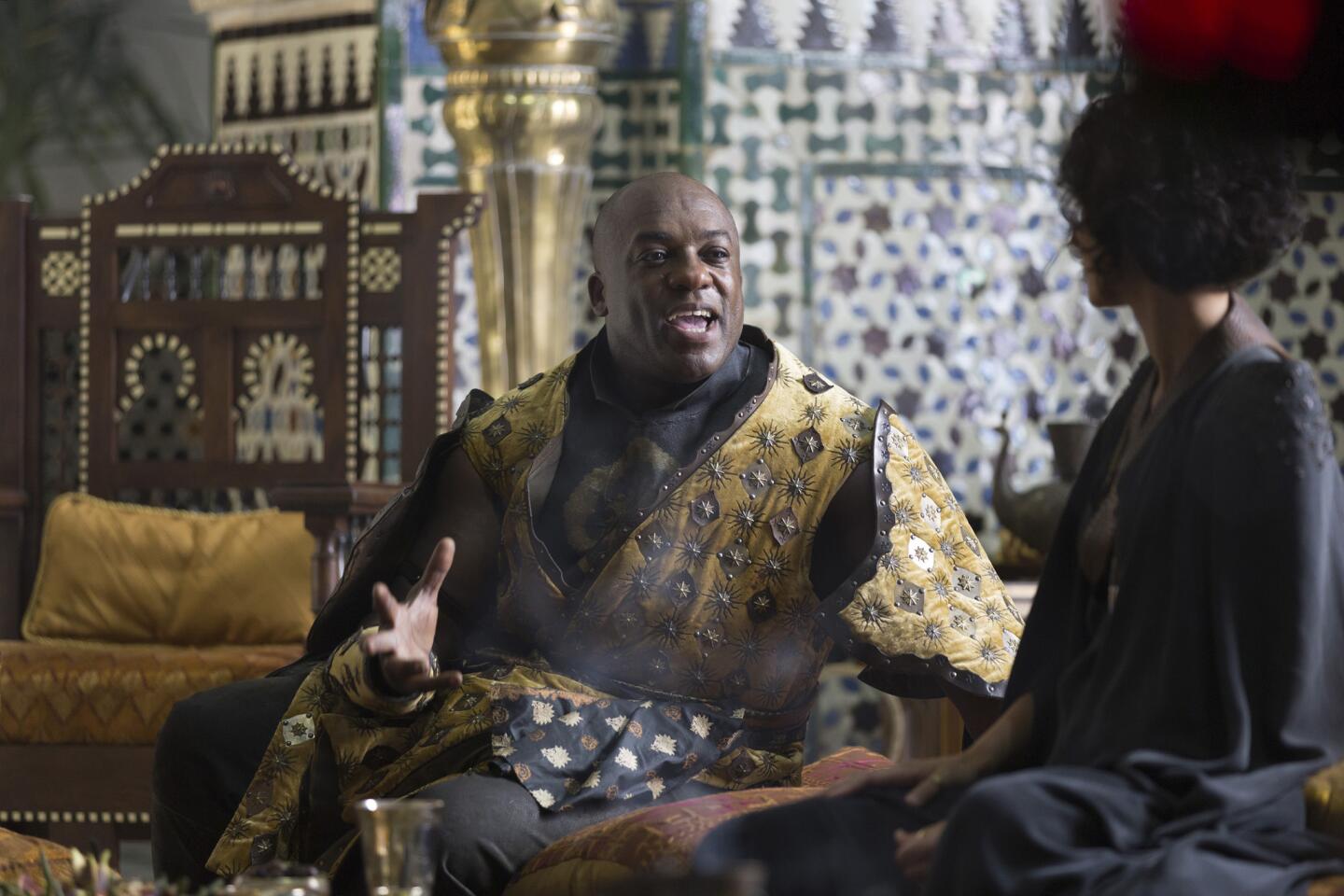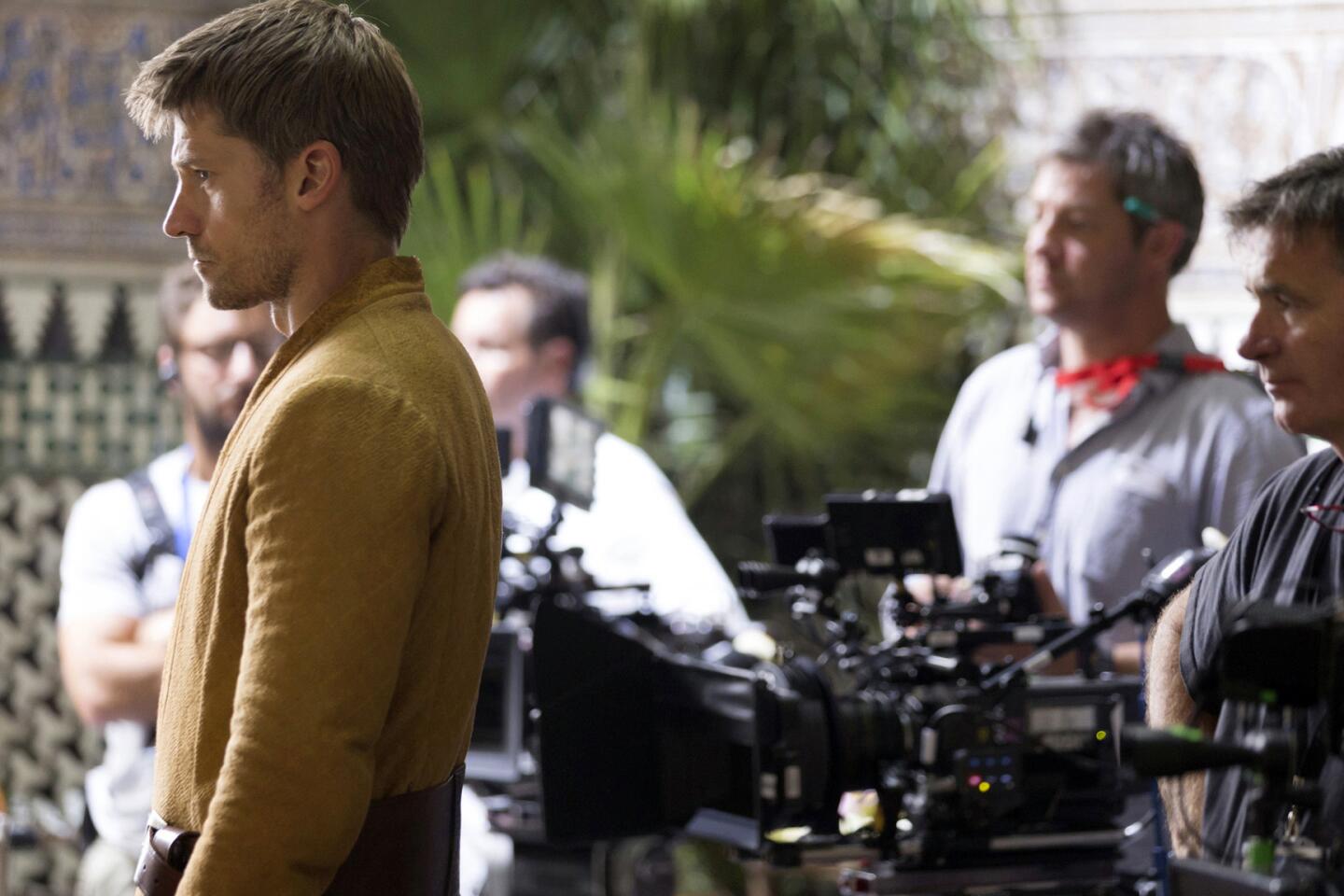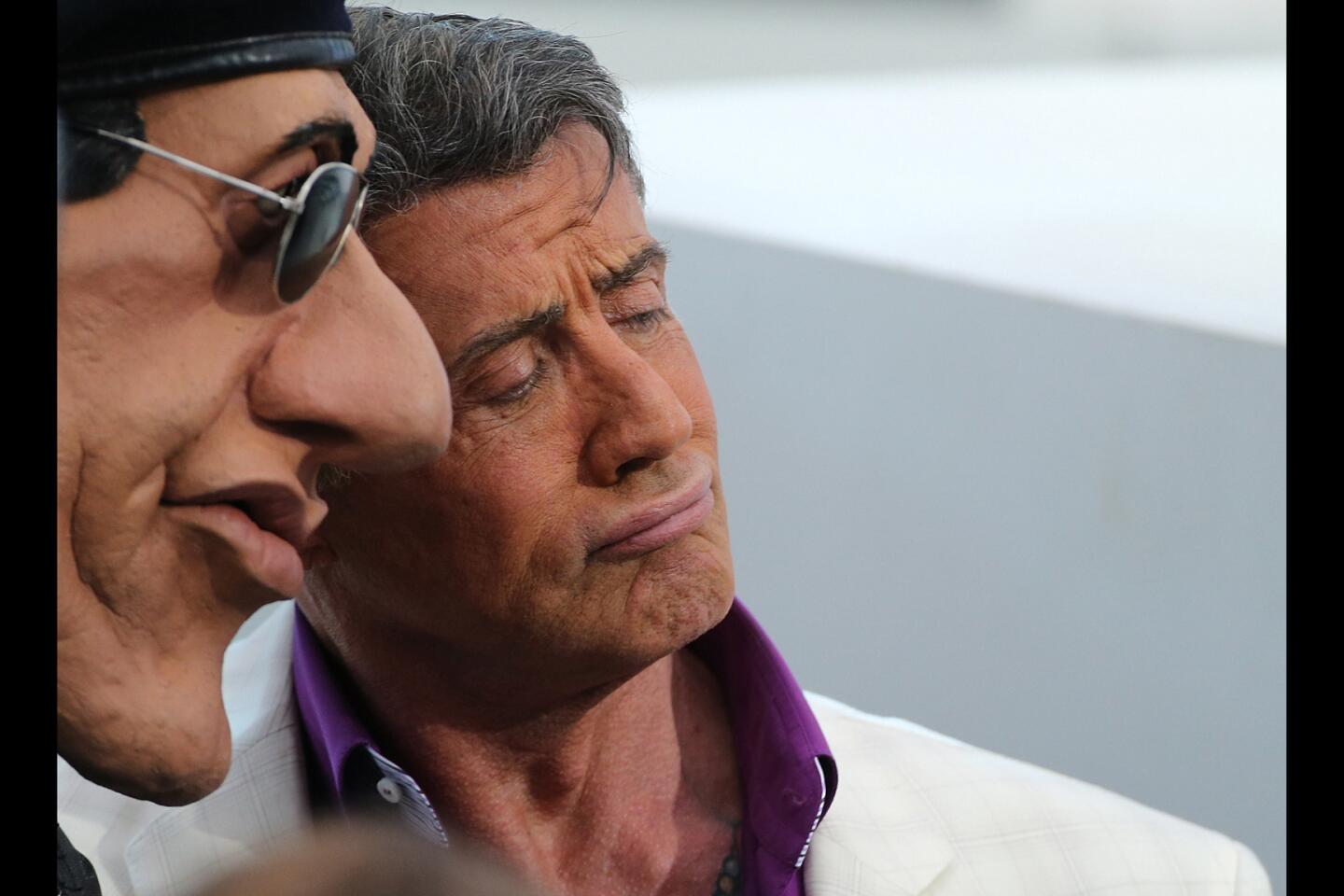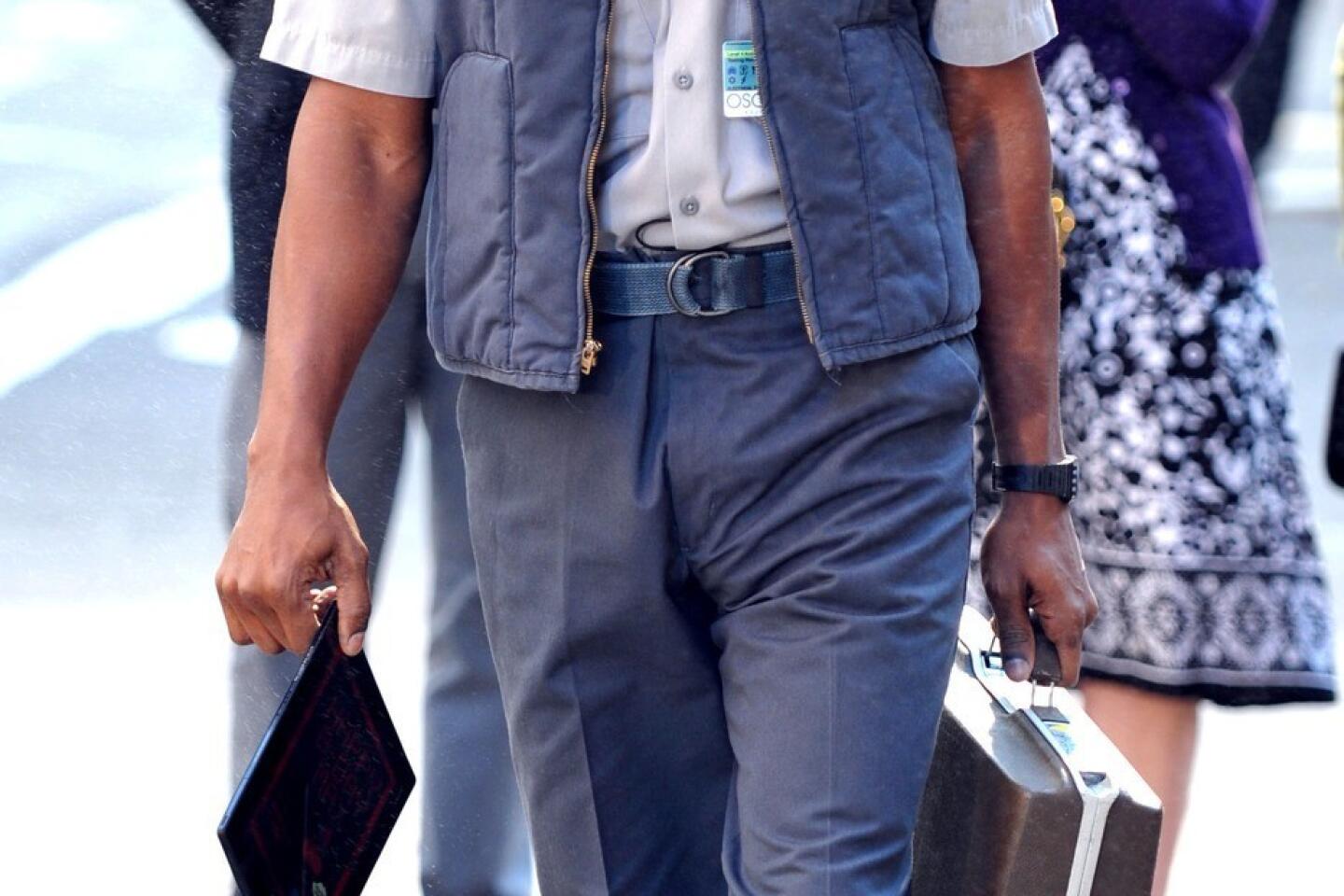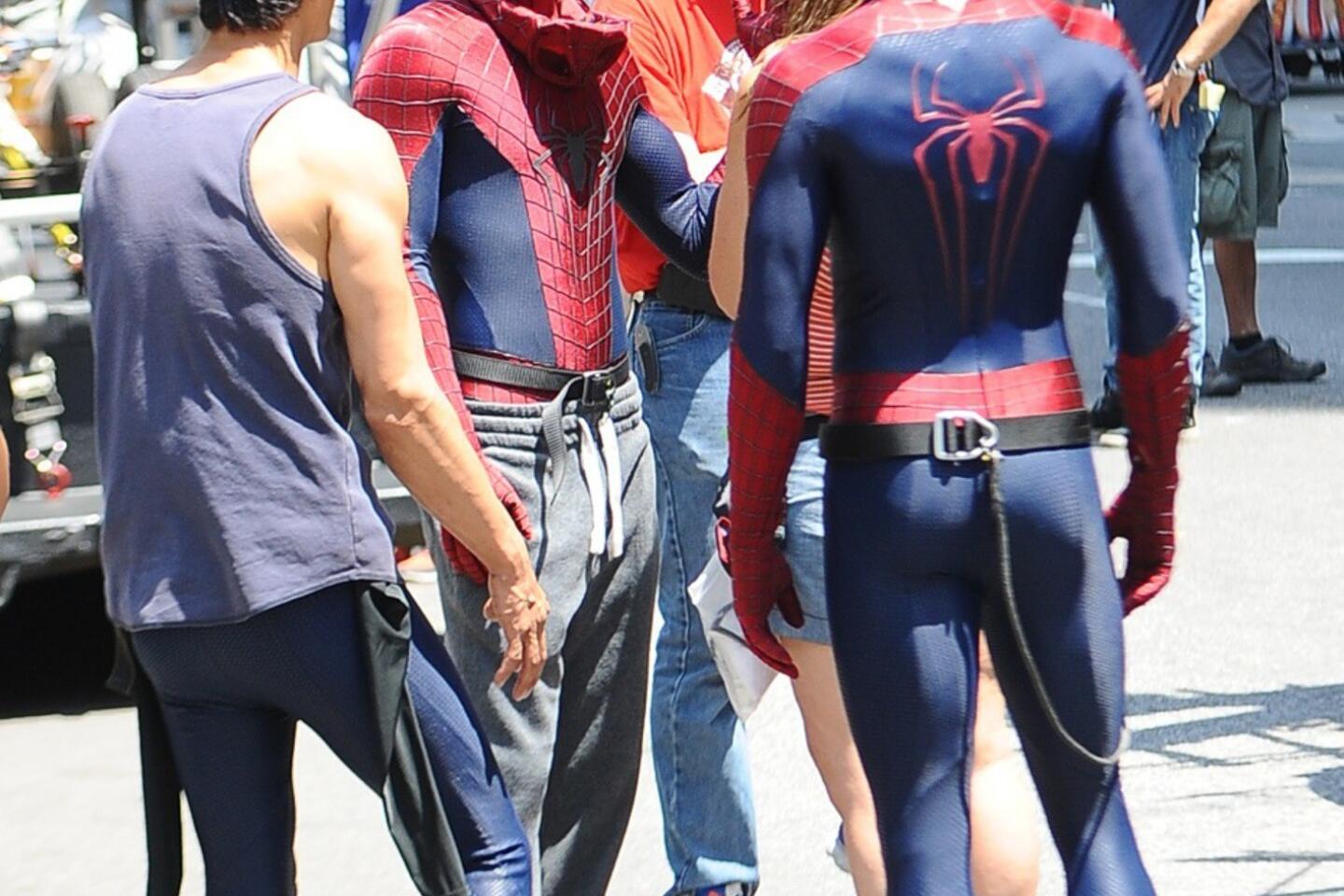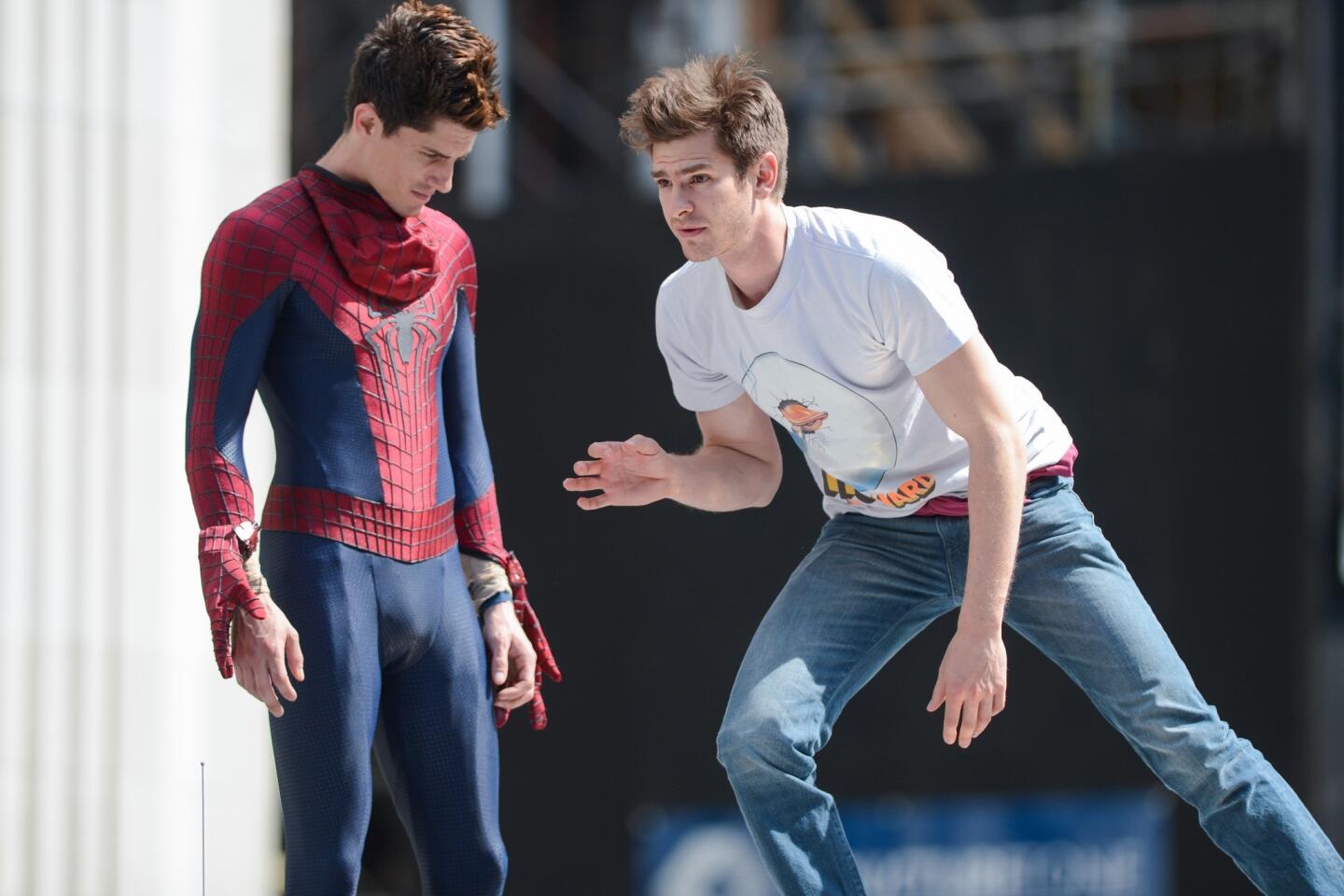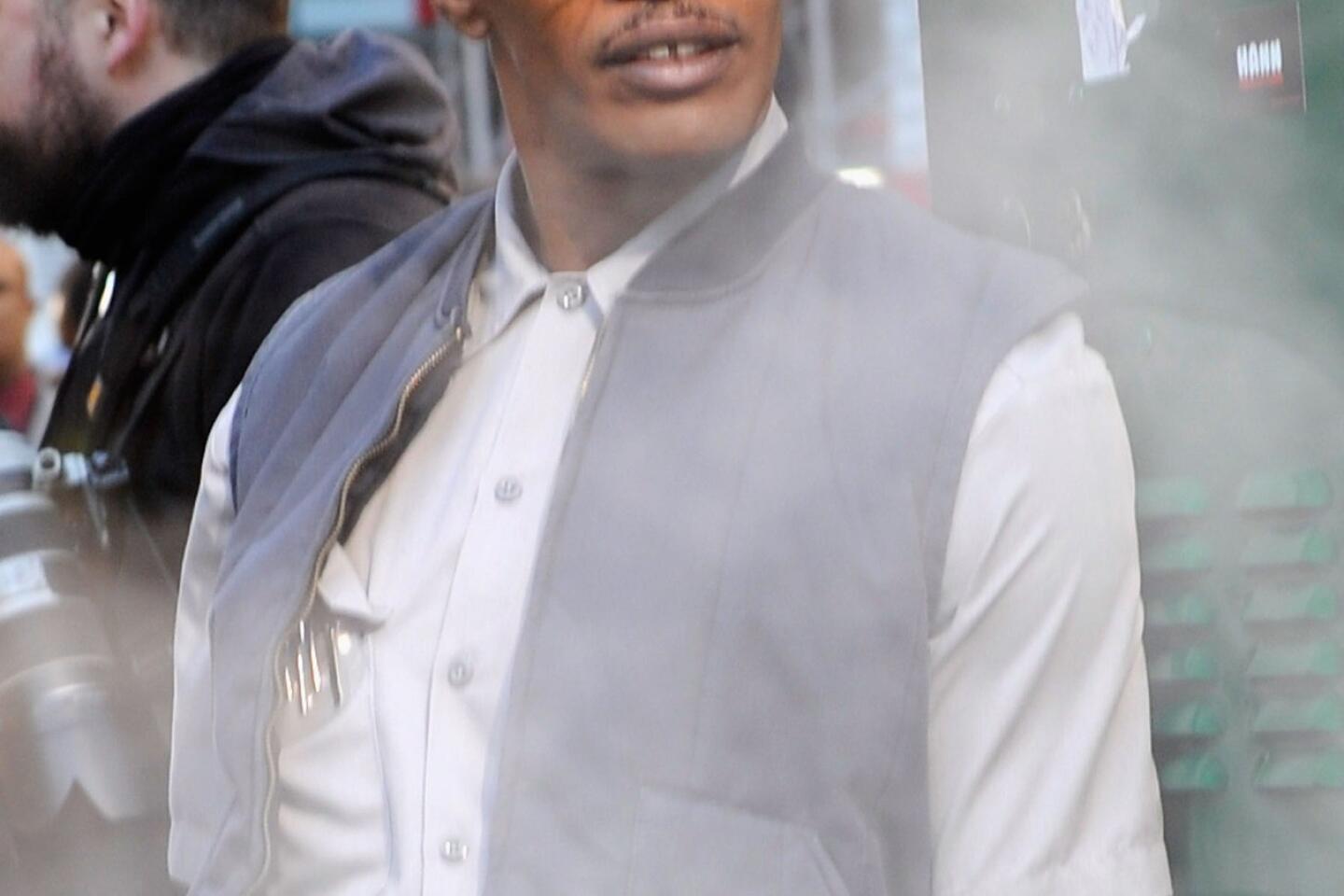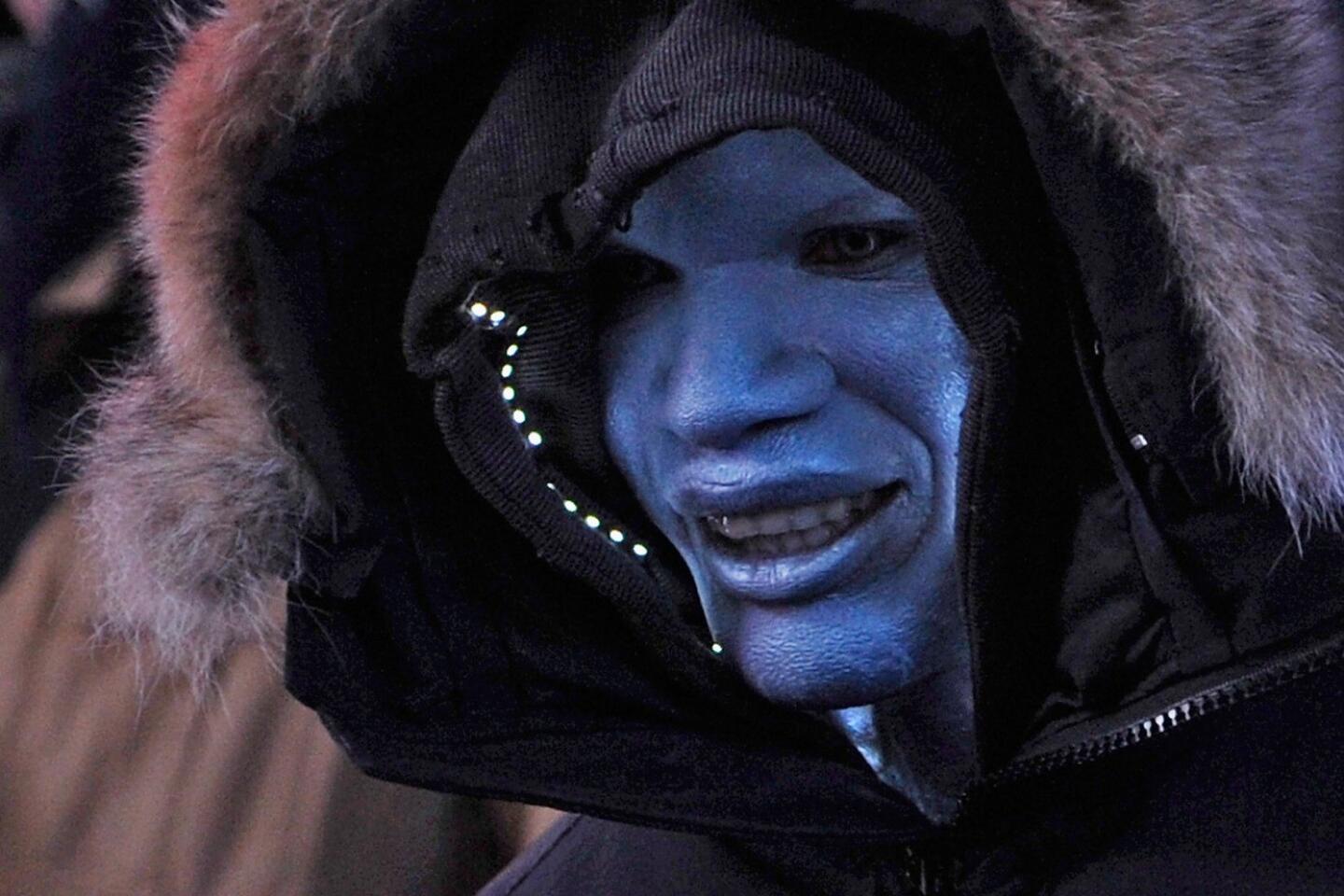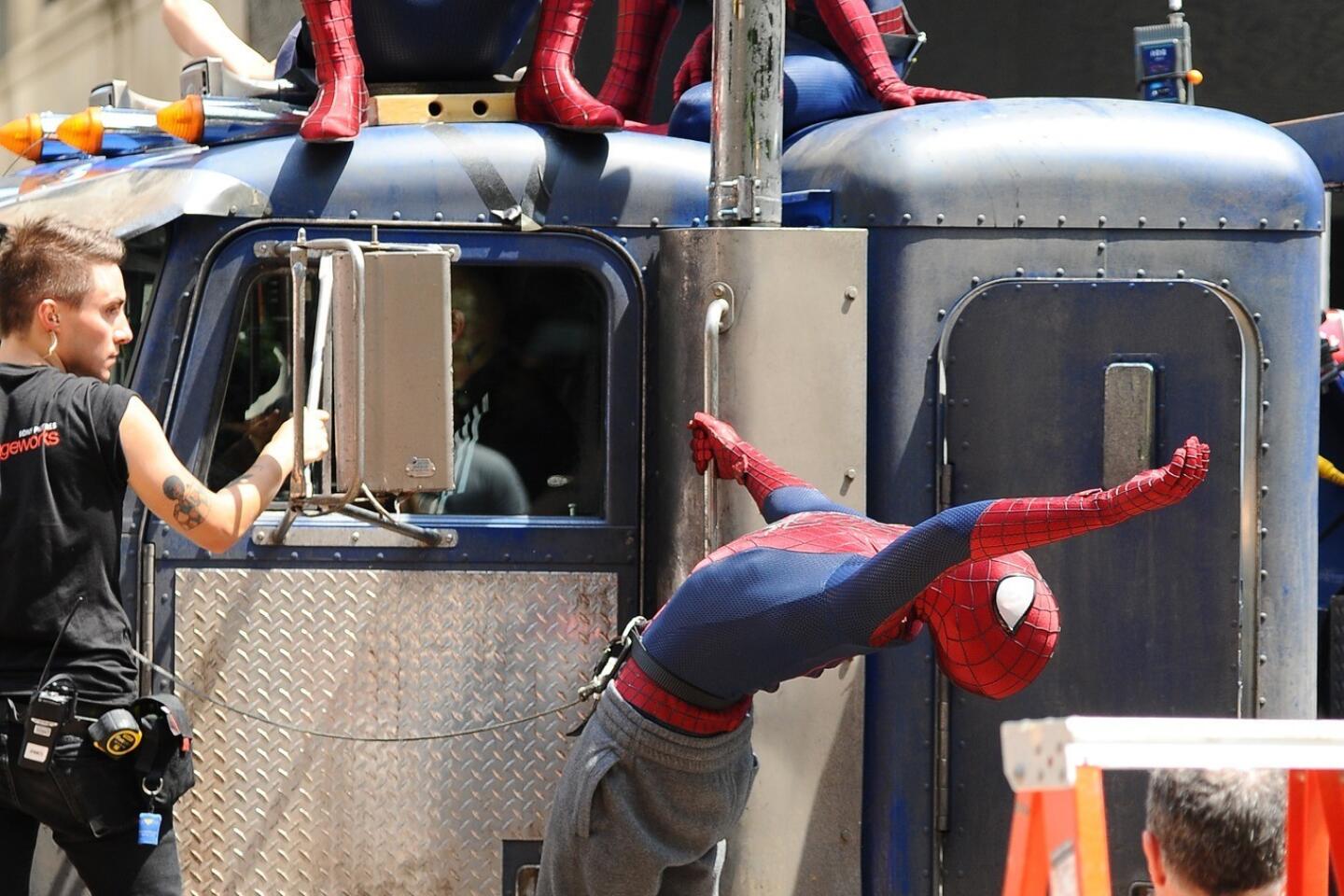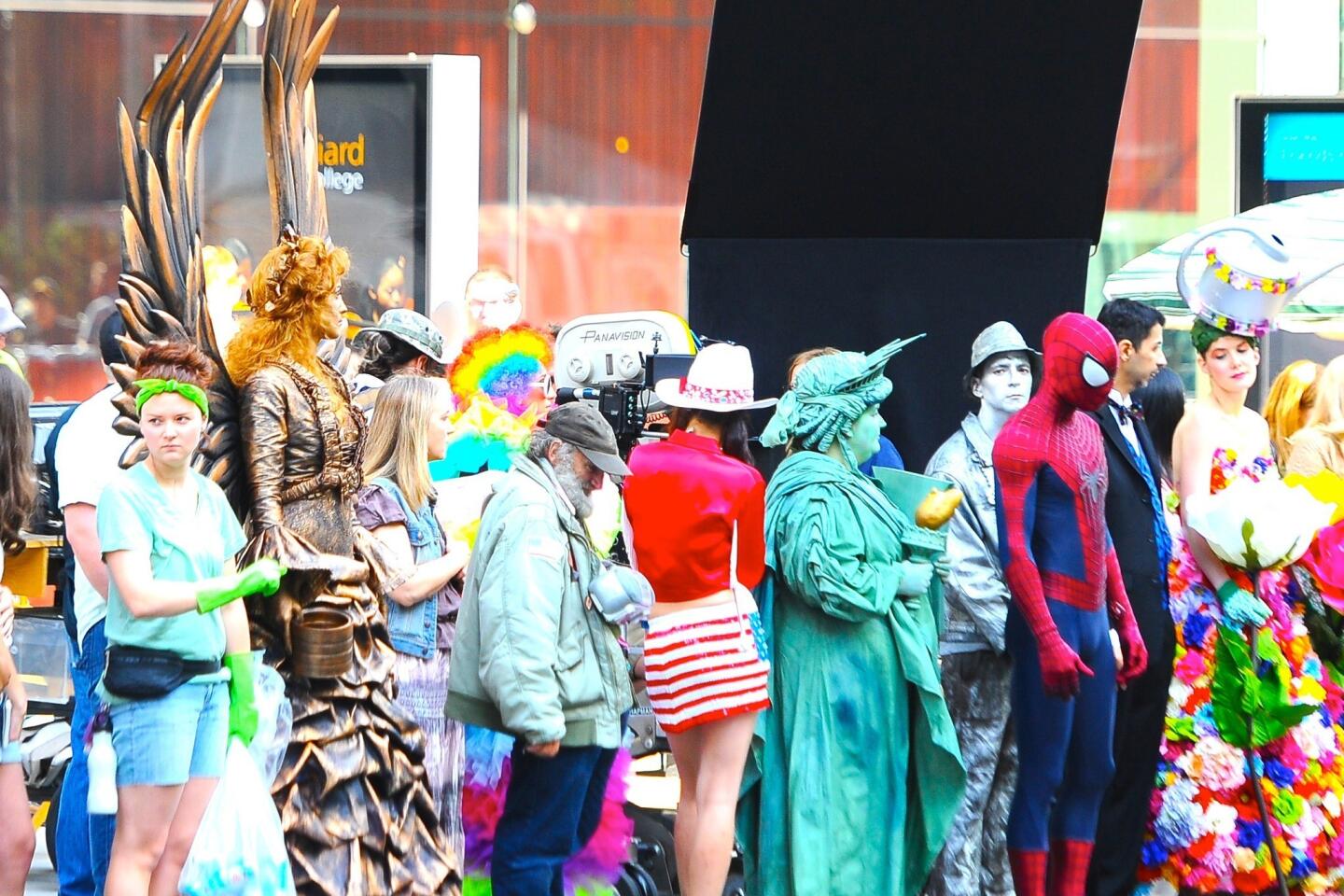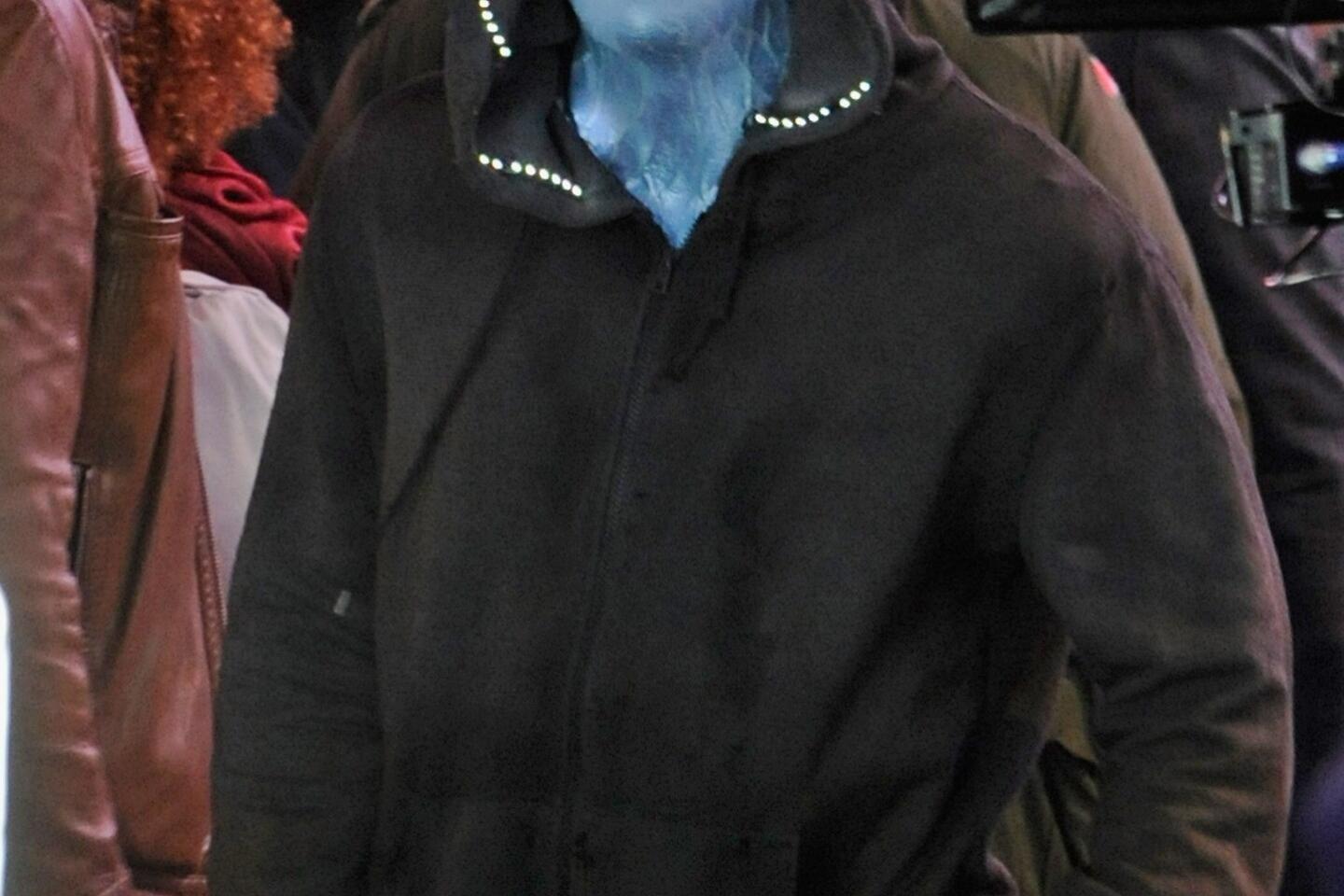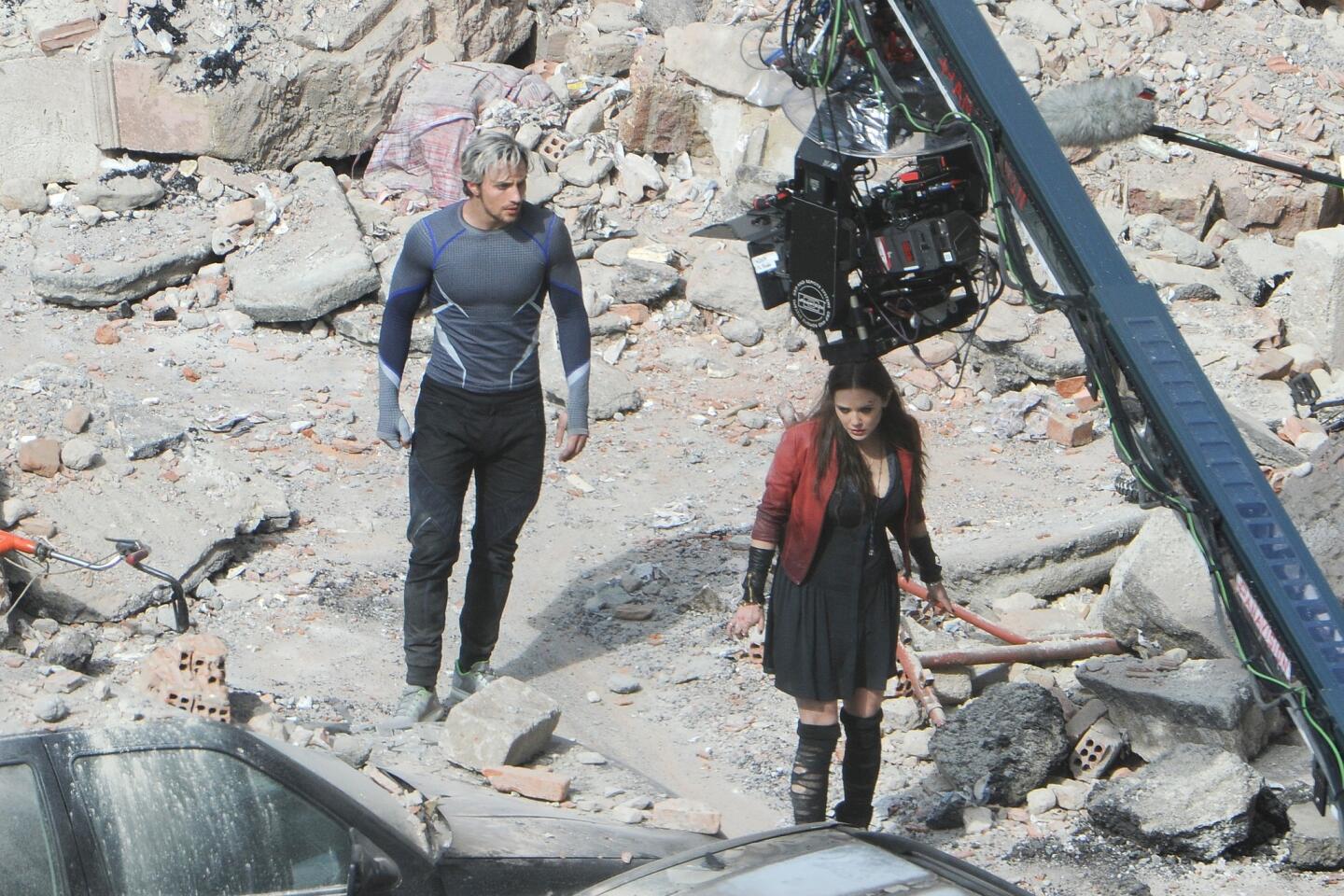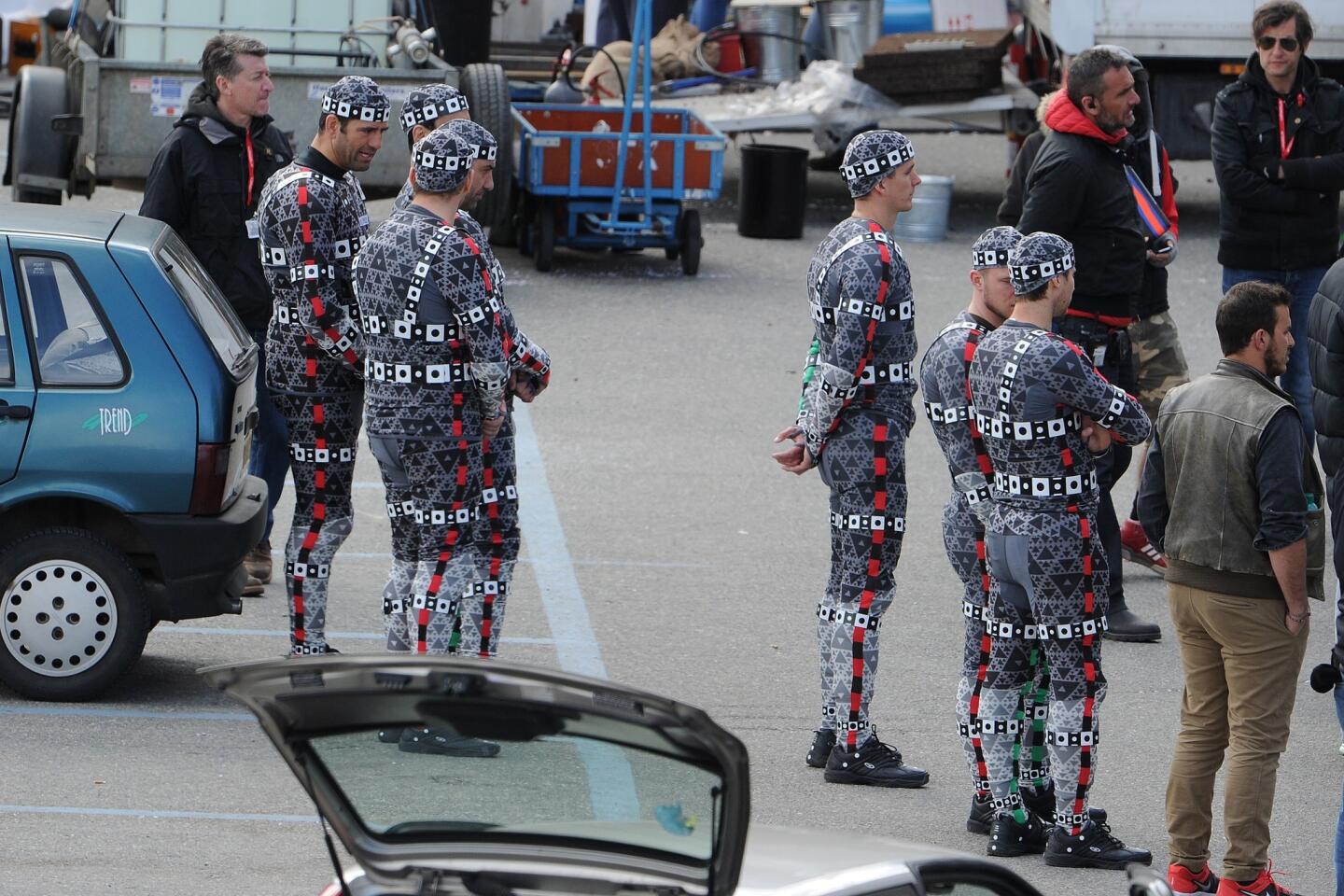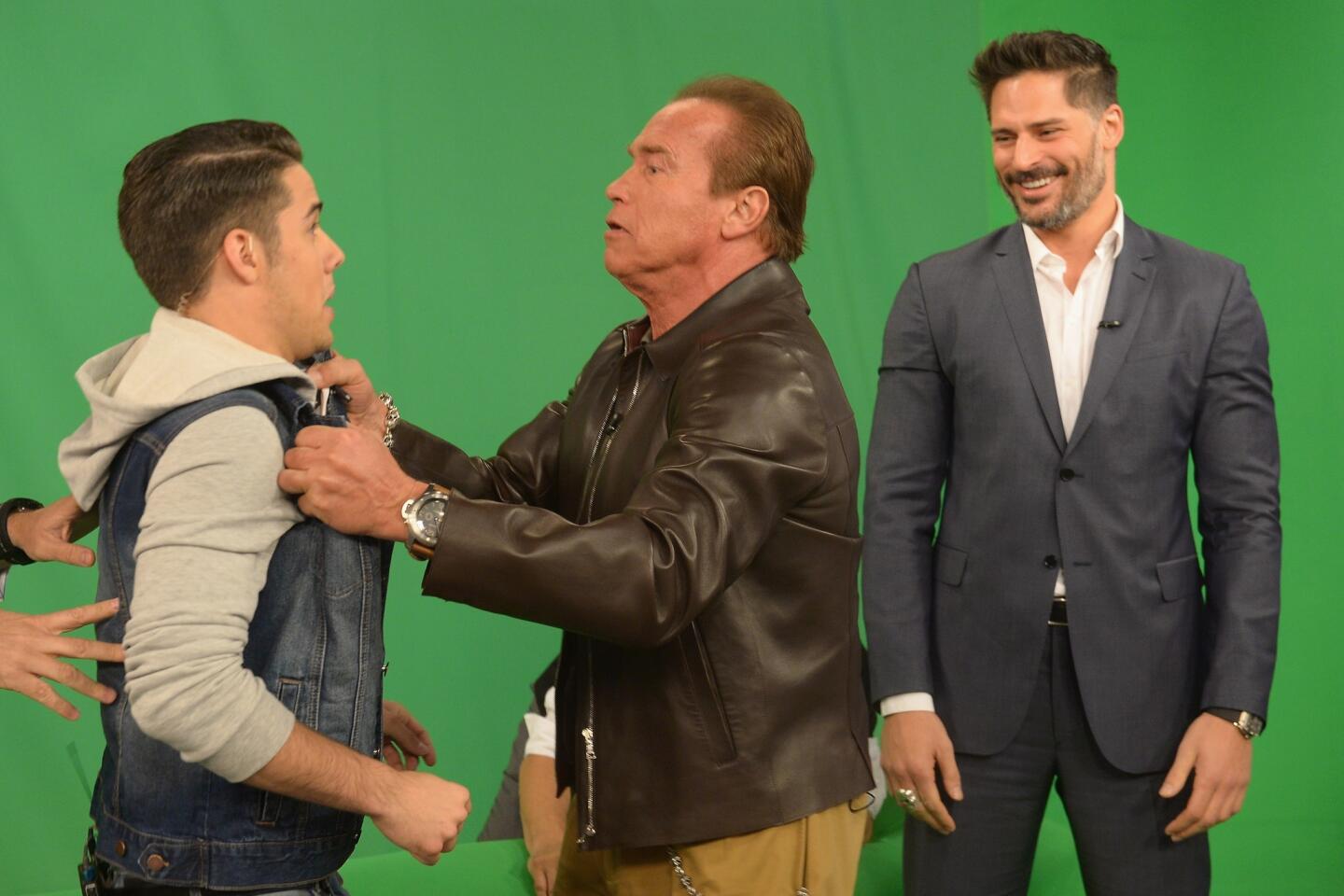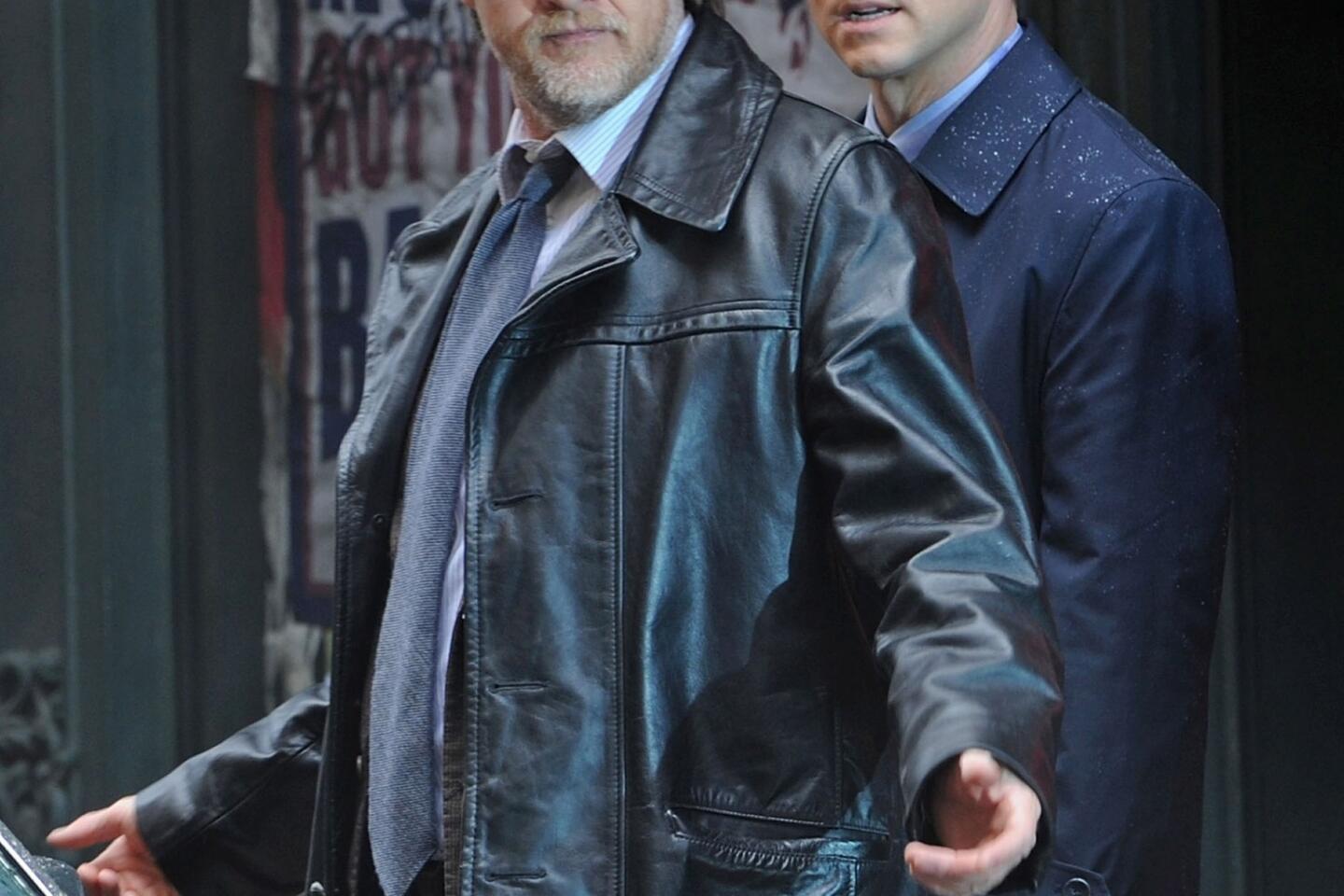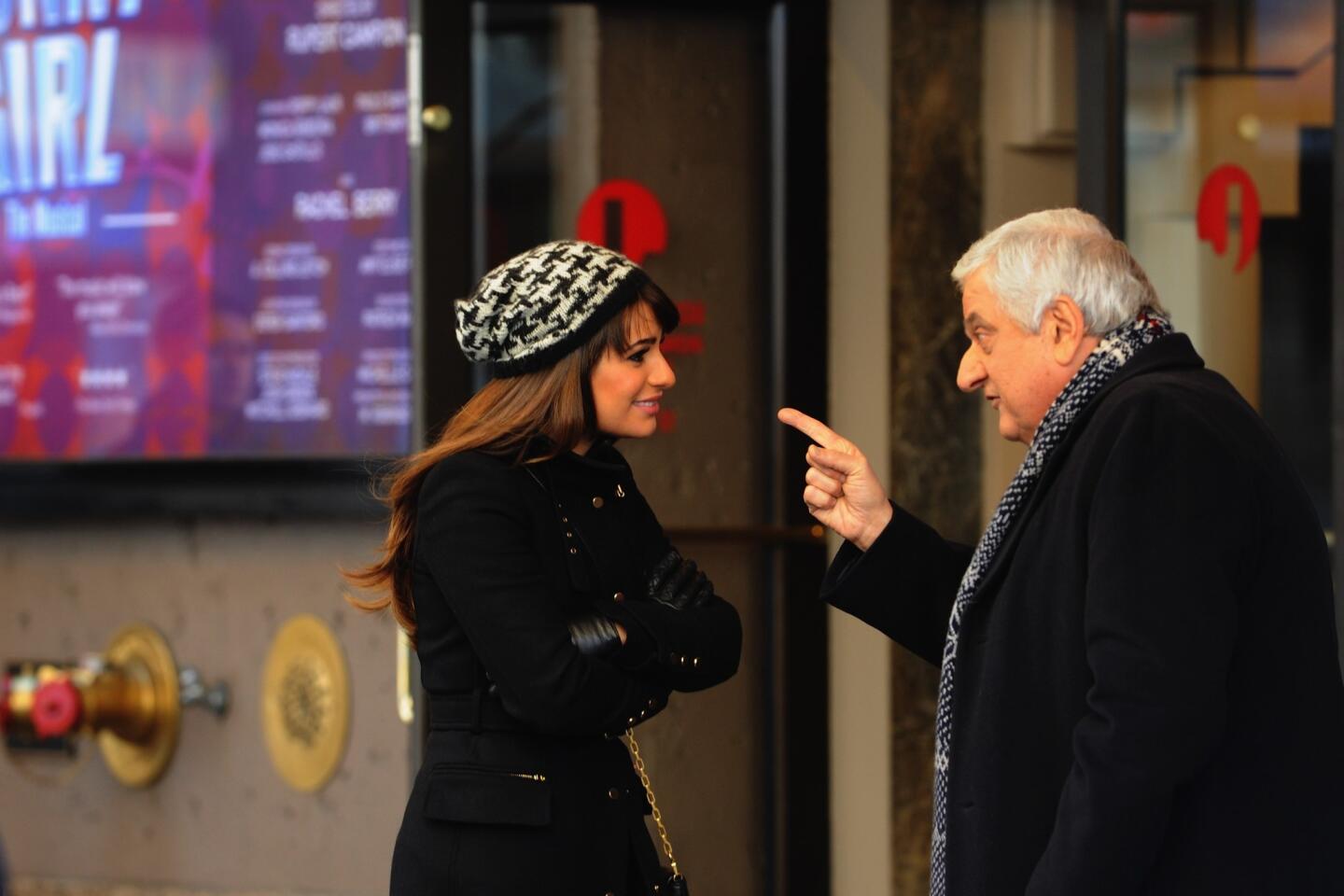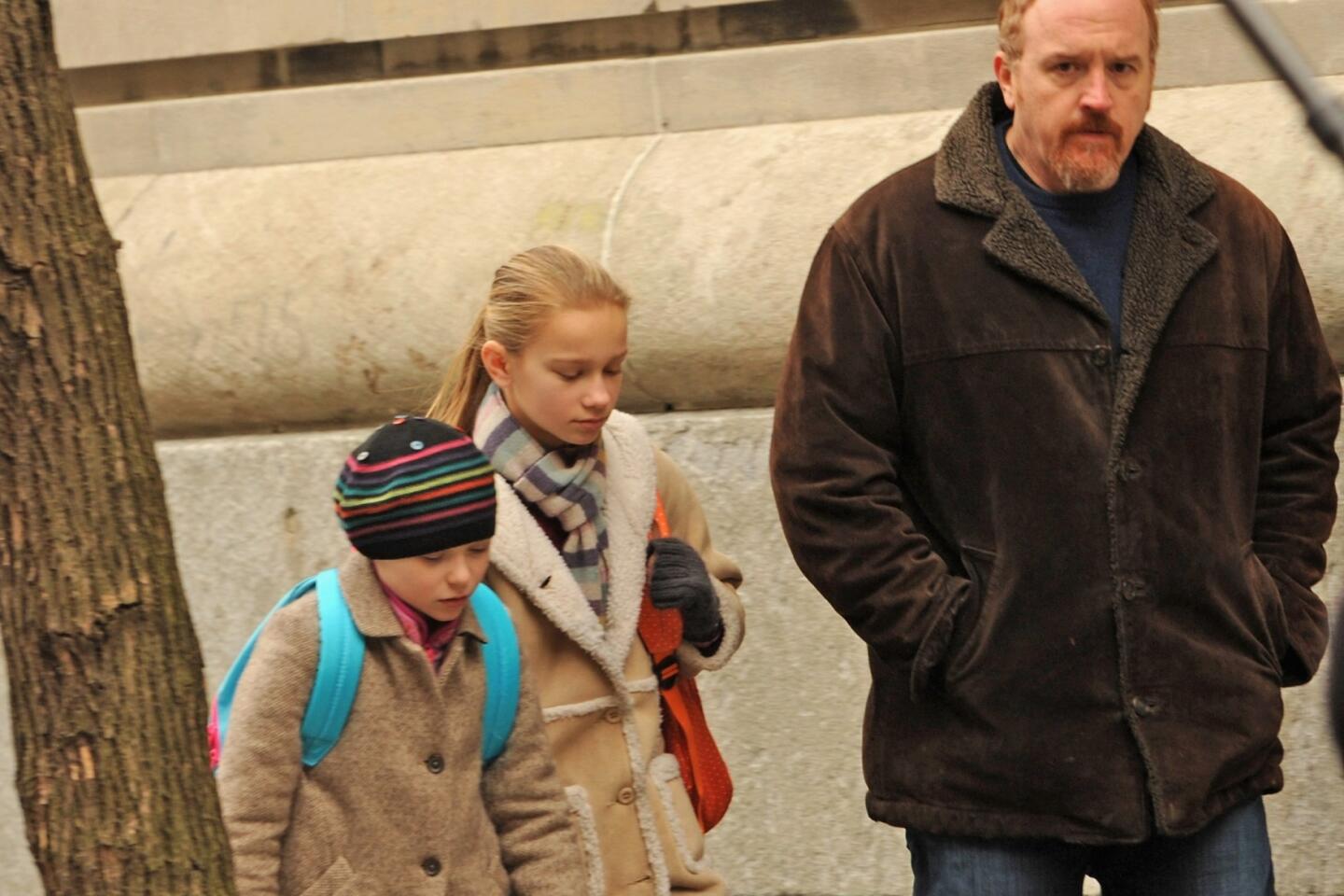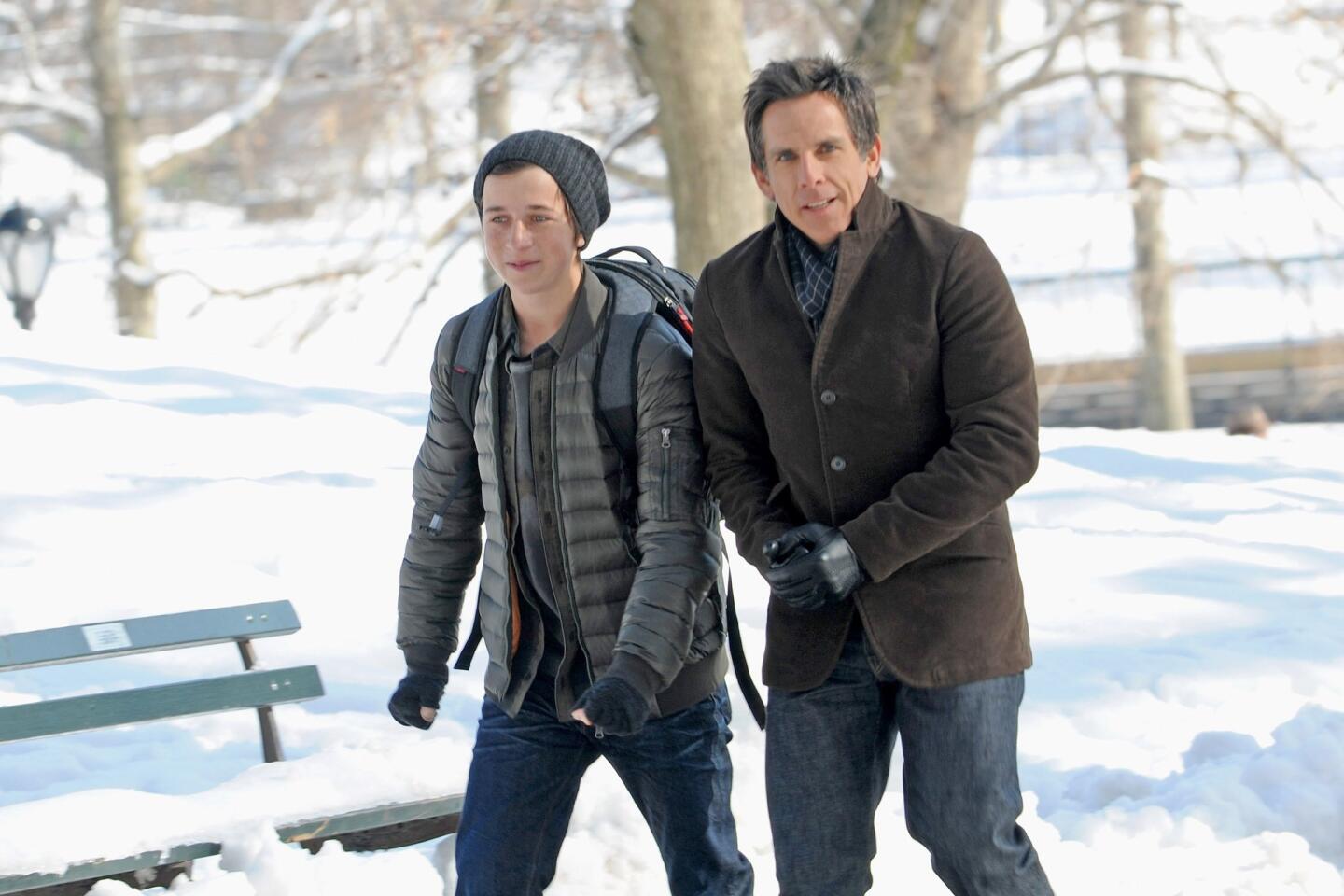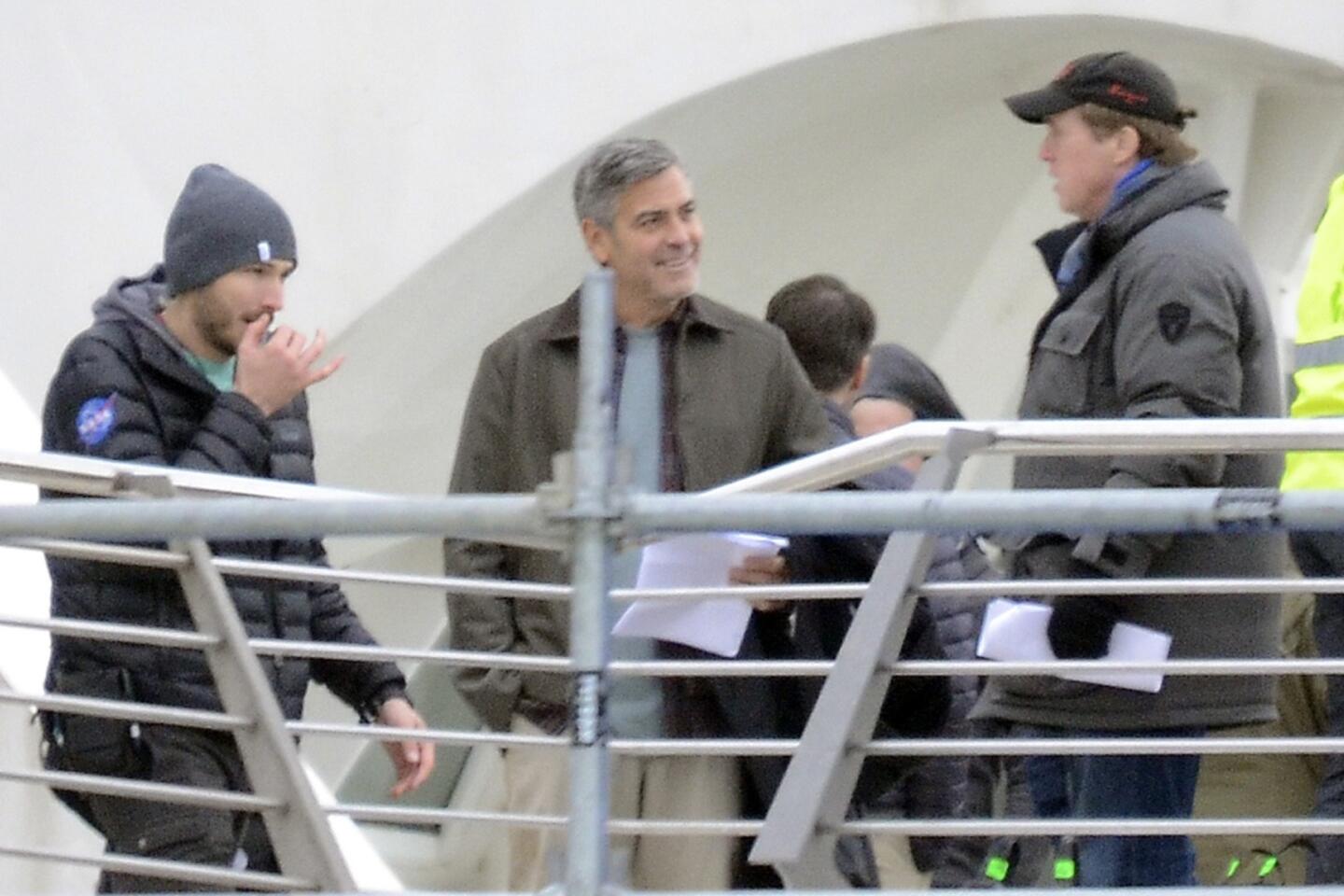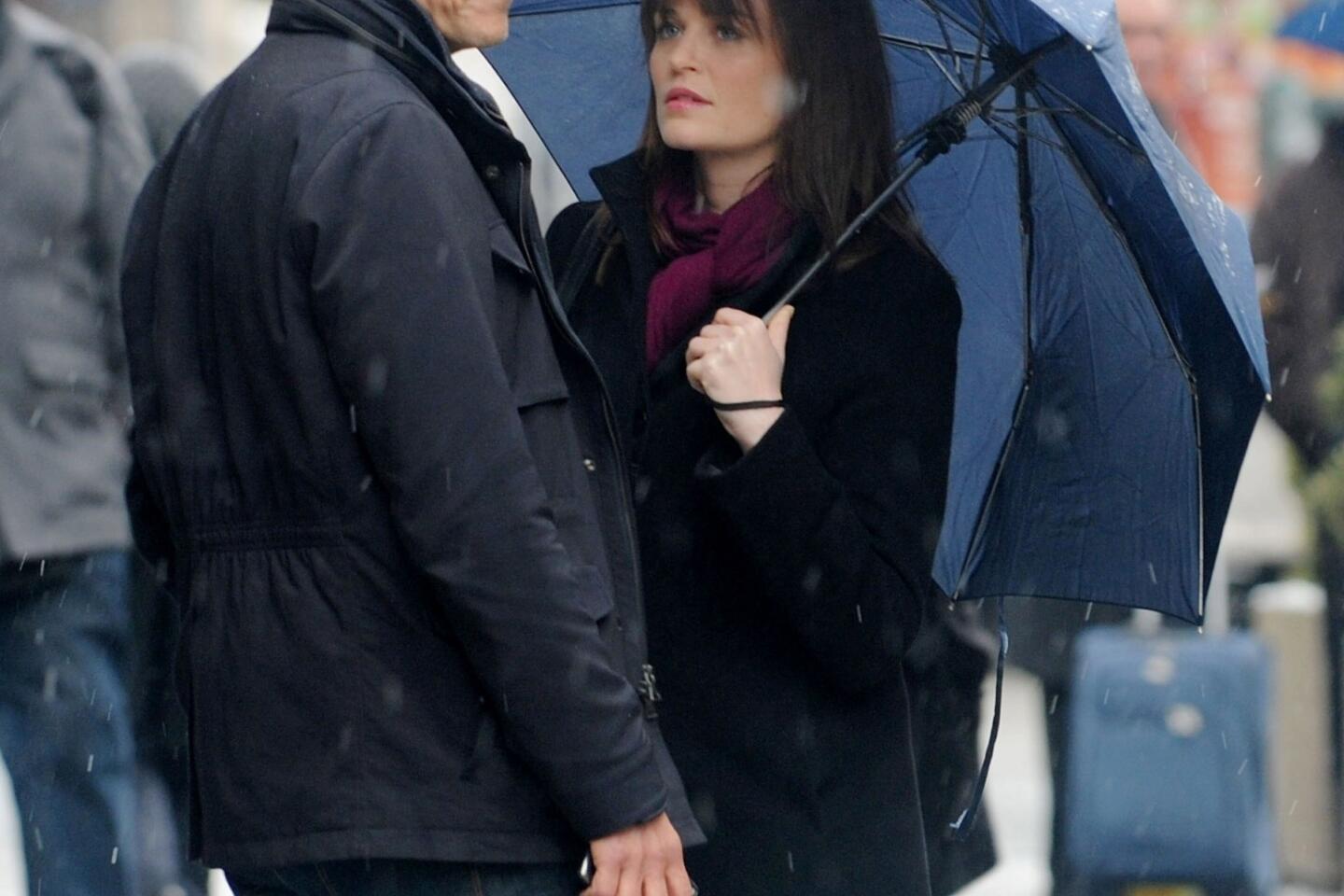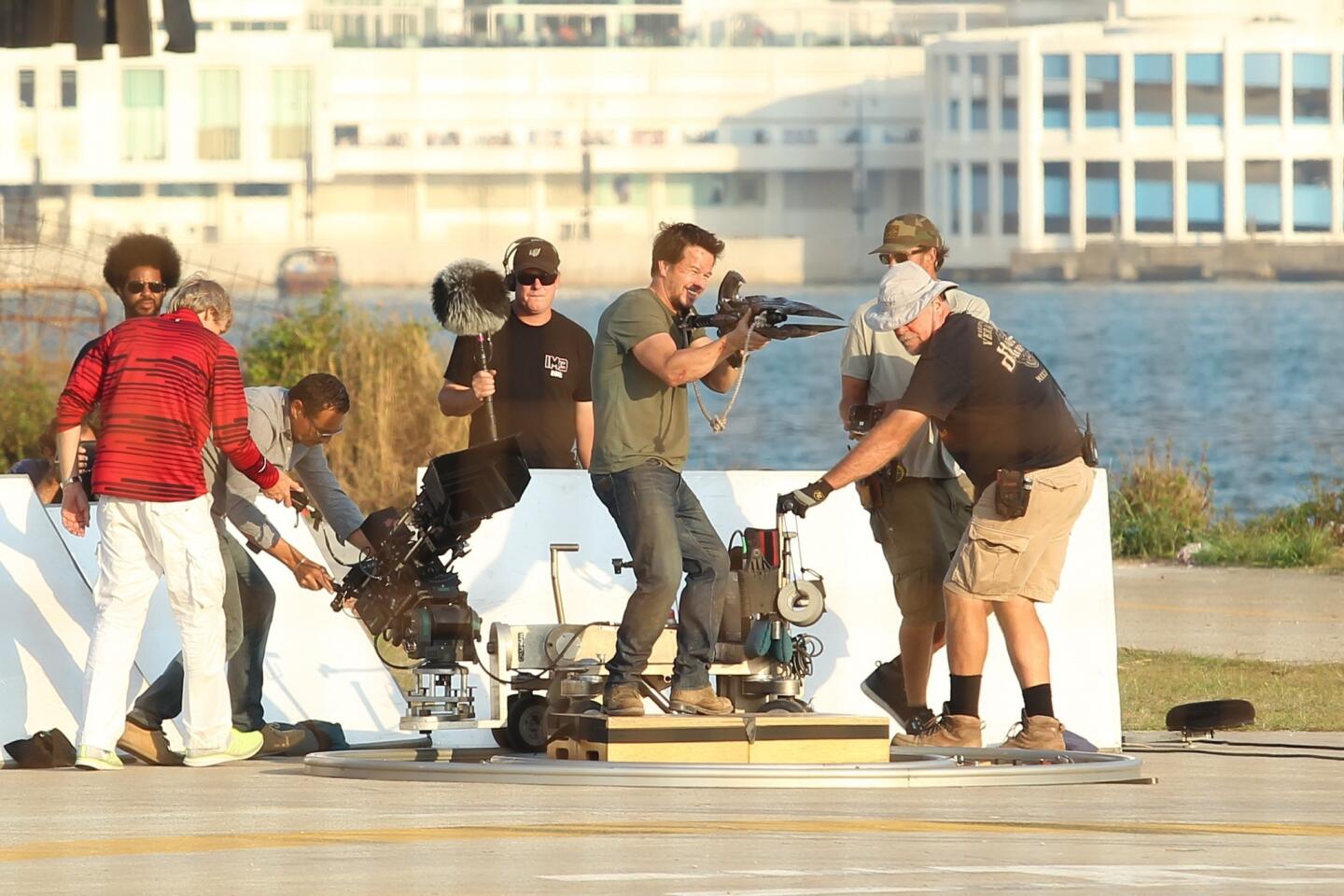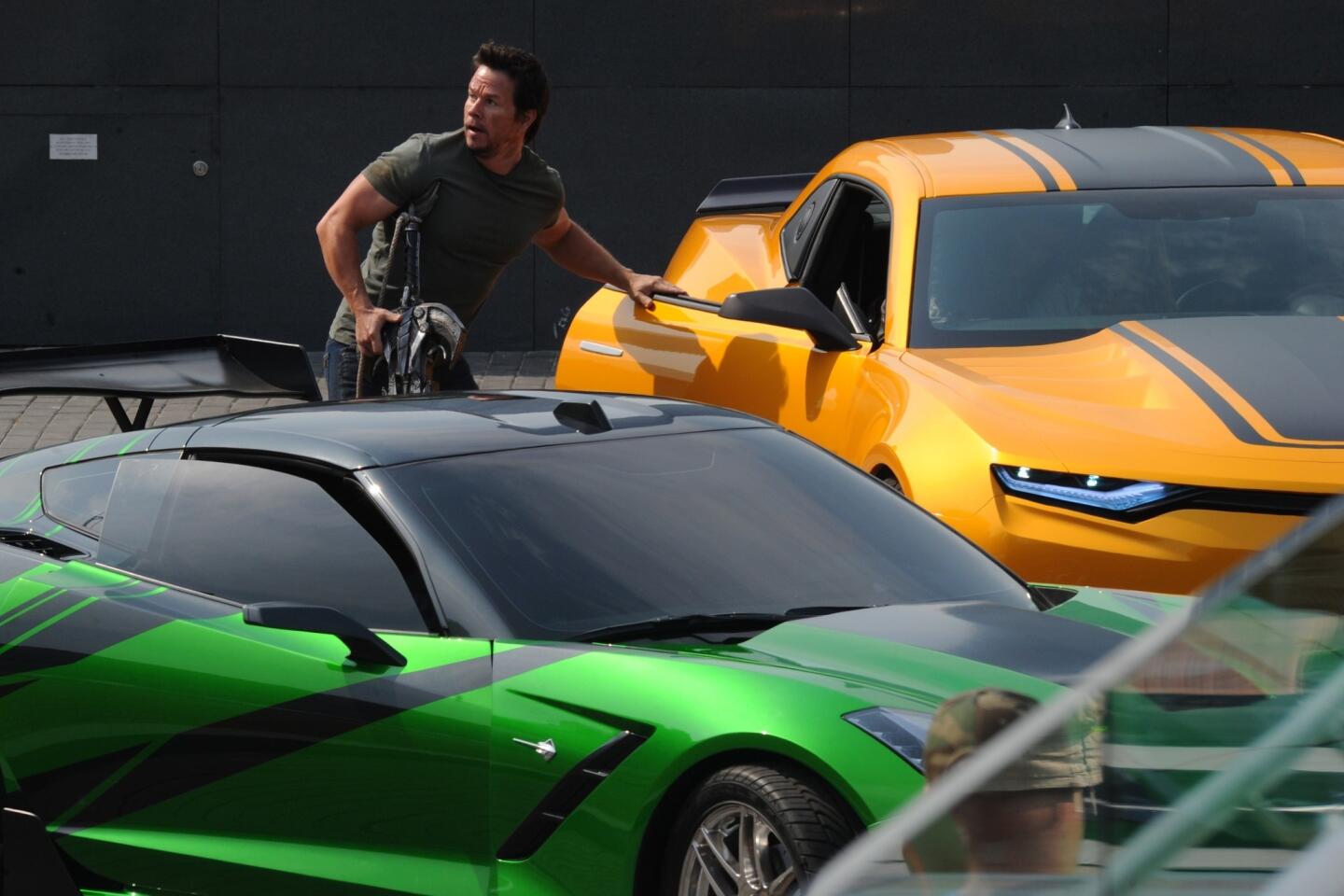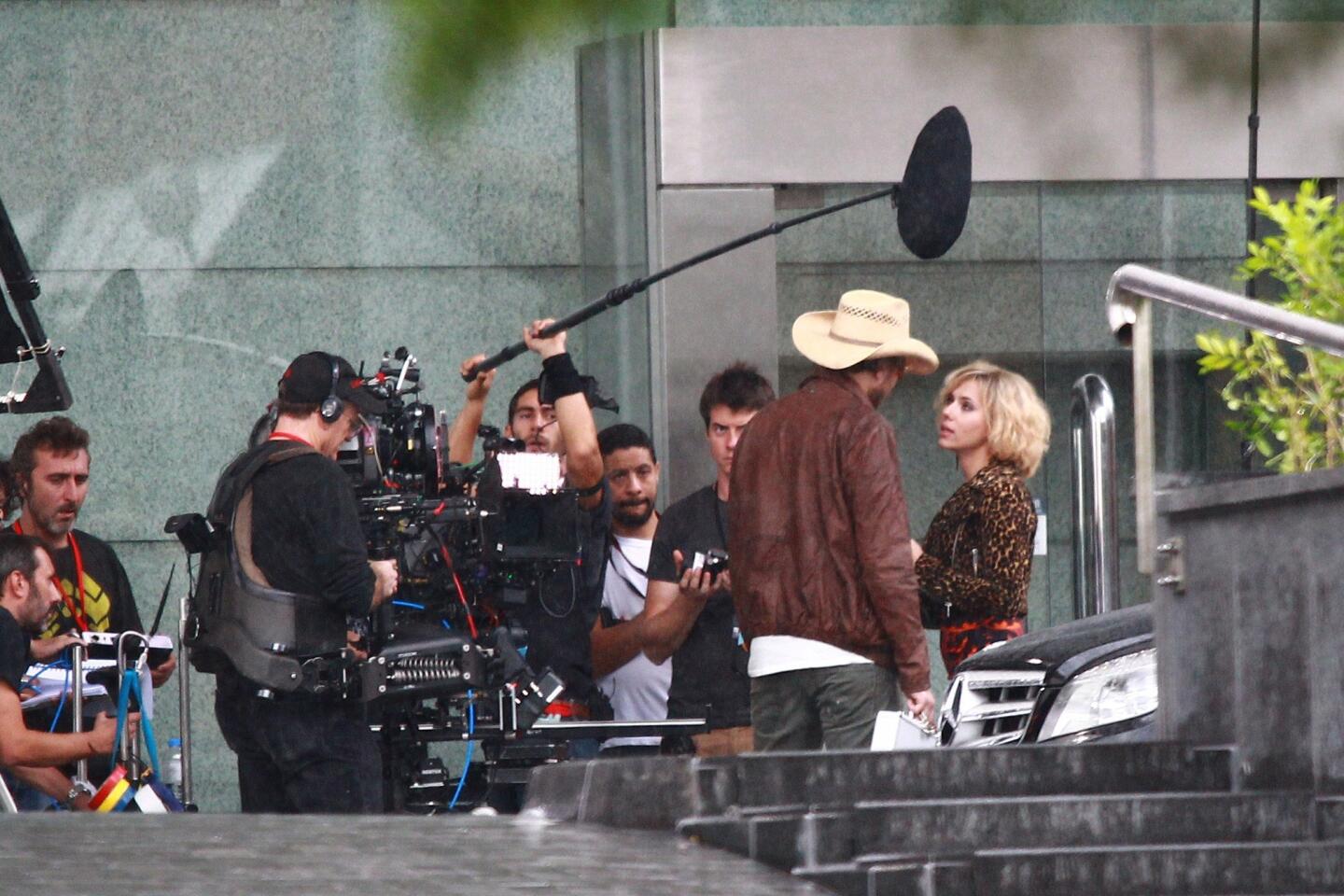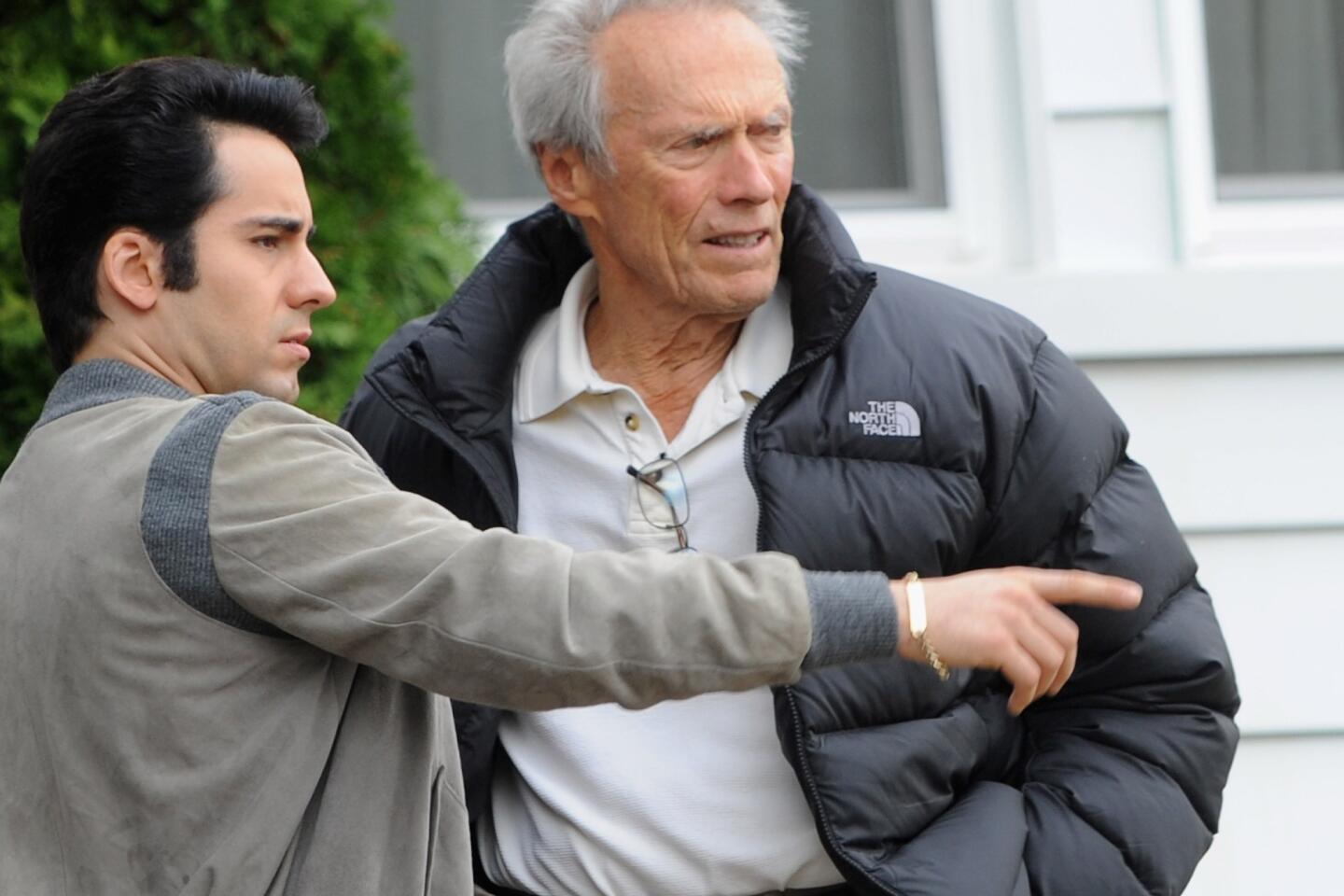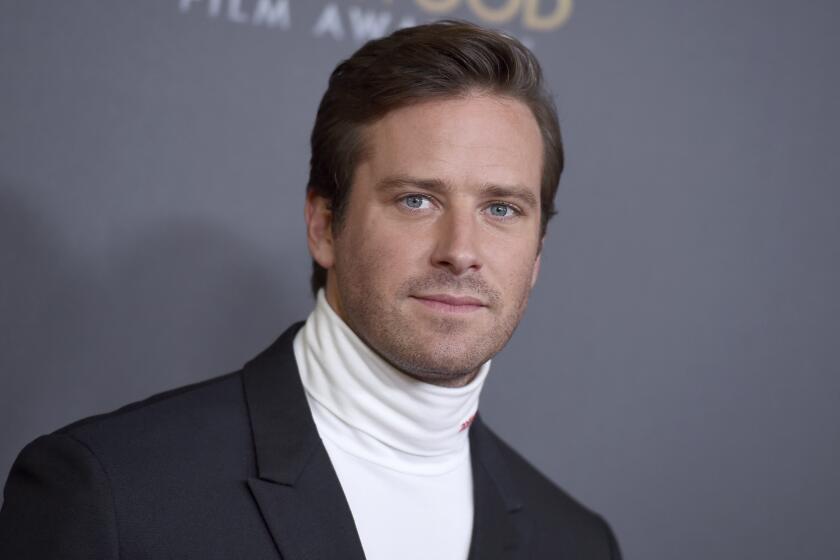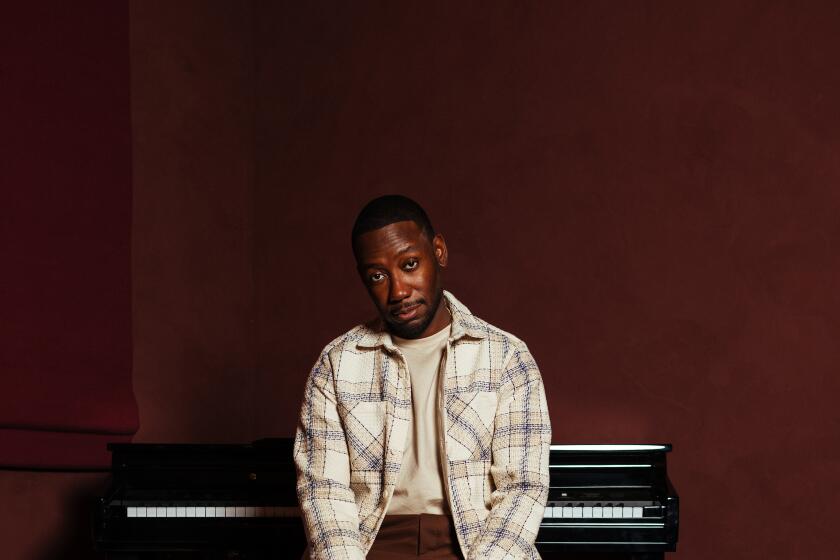Darren Aronofsky’s ‘Noah’: Can’t auteurs and studios just get along?
Making a big studio movie when you’re the strong-willed independent sort can run you into a lot of sand traps. Filmmakers in that position think studio execs are a bunch of philistines and marketing-minded meddlers, while the execs thinks a director is a stubborn, out-of-touch mule who’s never had to sell a ticket in his life. (Both may be slightly right.)
Darren Aronofsky and Paramount appear to be enacting that time-honored saga anew. A Hollywood Reporter story says that the director is skirmishing with Paramount over “Noah,” the new Russell Crowe-starring biblical epic set for March. It’s unclear what the exact issues are, though the shape of the third act (in the Bible it’s roughly the part after the flood ends and Noah seeks to rebuild civilization) seems to have something to do with it. It’s hard enough to make a tentpole in the best of times; doing it while also satisfying a religious audience is a challenge that’s almost, well, biblical.
The issues faced by an auteur like Aronofsky in making a studio movie are not new but are well known. In fact, the issues faced by Aronofsky himself are not new but are well known. After two movies made wholly independently (“Pi” and “Requiem for a Dream”), Aronofsky had an elaborate to-and-fro with Warner Bros. executives about budget and script over “The Fountain,” a movie that resulted in no one being very happy, least of all moviegoers. He then went independent with “The Wrestler,” which worked out a lot better.
He went smaller, budgetarily, with “Black Swan,” a movie that became a huge hit and an award-season favorite. But before production started on that film it was held up over disagreements between Aronofsky and studio Fox Searchlight over whether Aronofsky would retain final cut. Studio squabbling over a final cut now appears to be happening on “Noah.” (And of course Aronofsky dropped out of a big studio production in Fox’s “The Wolverine” though he noted that was for family reasons.)
It’s easy to say these pickles can be avoided if only studios were more flexible and listen to a filmmaker more often — that’s the person, after all, with the vision. For their part, some say, auteurs would should just be less fussy and relinquish some control; this is, after all, what they signed up for. Besides, studio meddling doesn’t necessarily lead to a bad movie — look at how Paramount improved “World War Z” when director Marc Forster turned in a cut that by all accounts had an unworkable third act.
PHOTOS: Hollywood backlot moments
But of course it’s not that simple. A studio may say it’ll give the director control and then blanch when it realizes just what its control means. And directors tend to think they’d be OK with a certain amount of input then find themselves aghast when they realize what that input actually is. (A blind source in the THR story noted that “Darren is not made for studio films He’s very dismissive. He doesn’t care about [Paramount’s] opinion.”)
The simplest solution would be for auteurs and studios to avoid each other altogether. But the fact is, auteurs have made some pretty great movies working with studios. (Without such bipartisanship, we wouldn’t have Christopher Nolan’s “The Dark Knight,” Alfonso Cuarón’s ‘Gravity” or Martin Scorsese’s “Hugo,” to name three examples.)
Sure, there are a growing number of independent entities willing to write big checks that will grant filmmakers freedom — look particularly at Megan Ellison’s Annapurna Pictures, which has been responsible for films such as the 2012 awards hit “Zero Dark Thirty” and the buzzy upcoming “Her.” But that will never be the full solution, in part because there are not enough Megan Ellisons to satisfy all the auteurs out there, and in part because studios like financing movies — it gives them far more of the glory and the upside. And if you want glory and upside, you kinda want to have a talented director with some vision on board.
Which leads us back to “Noah.” Sometimes a happy ending is possible in a situation like this — see under: “World War Z.” But more freqiently these fights end in an unhappy in-between place: not enough vision to be great, not enough marketing-savvy to be a hit. Auteurs and studios need each other, like, well, creatures marching two by two. But that pairing can spell a deluge of problems.
ALSO:
First Look: Russell Crowe is...Noah
Oscar nominee Aronofsky looks ahead to Wolverine and Noah
Hurricane Sandy headed toward Russell Crowe’s ‘Noah’s’ Ark
Follow me on Twitter at https://twitter.com/ZeitchikLAT
More to Read
Only good movies
Get the Indie Focus newsletter, Mark Olsen's weekly guide to the world of cinema.
You may occasionally receive promotional content from the Los Angeles Times.
